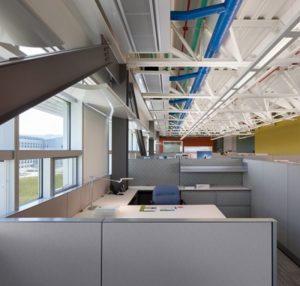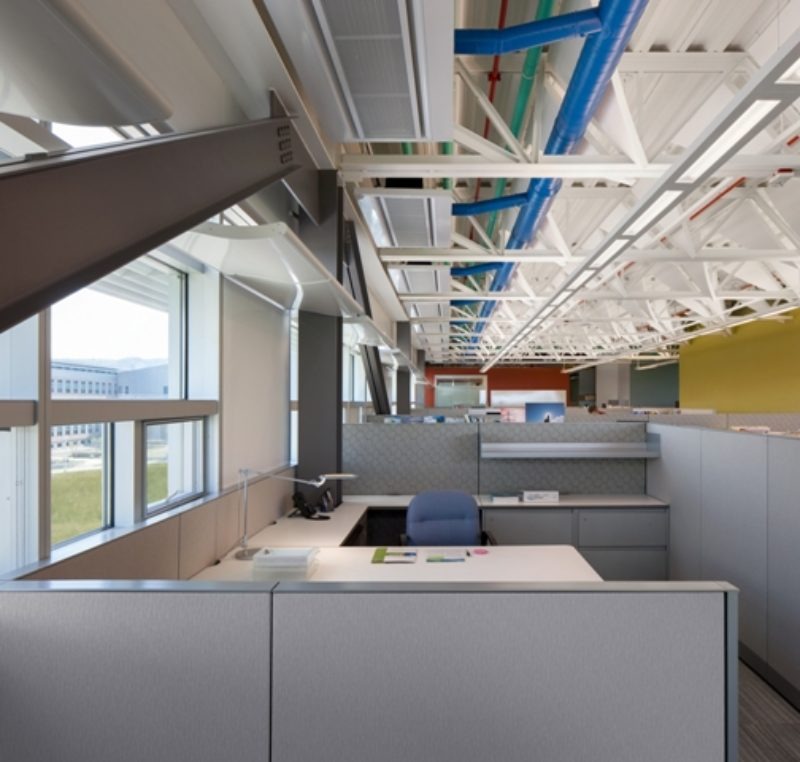Efficient HVAC Systems is the backbone of buildings

HVAC systems are considered the backbone of buildings because they are essential for maintaining a comfortable, healthy, and safe indoor environment while optimizing energy usage and complying with regulations.
HVAC systems serve as the essential backbone of buildings, ensuring safety and promoting healthier environments. By utilizing fresh air from the external surroundings, these systems effectively regulate temperature and humidity levels. Comprising various components like thermostats and heating units, HVAC systems cater to the diverse air conditioning needs of different spaces.
In the industry, specialized HVAC consultants hold significant authority due to the integral role HVAC systems and their various types play in building infrastructure. Nowadays, no building is considered complete without a well-designed and properly functioning HVAC system. Understanding the basics of HVAC becomes paramount as it directly influences air quality and temperature control. This knowledge not only helps in avoiding faulty installations but also prevents future issues, premature wear and tear, and expensive breakdowns of HVAC units and systems.
Defining HVAC Systems
HVAC, an acronym for Heating, Ventilation, and Air Conditioning, represents a vital aspect of mechanical engineering related to building structures. It encompasses a range of systems and types employed to facilitate the movement of air between indoor and outdoor spaces. Furthermore, HVAC systems provide heating and cooling solutions for both residential and commercial buildings. Their primary function revolves around maintaining the air quality within a building, making them an indispensable component across various settings such as houses, apartments, offices, and hospitals.
The Importance of HVAC Systems in Buildings
HVAC systems are not merely optional additions, but absolute necessities. Why are they essential in residential, commercial, and industrial buildings? The answer lies in their pivotal role in maintaining indoor air quality. Research conducted by the Environmental Protection Agency has shown that poor air quality is a major contributor to environmental illnesses. Efficient HVAC systems effectively address this issue by circulating air, regulating temperature based on weather conditions, and filtering out harmful particles and gases. Consequently, the risk of allergies, respiratory problems, and seasonal flu is significantly reduced.
Heating in HVAC Systems
Heating, an integral aspect of HVAC systems, involves more than just individual room heaters commonly used during winters. It entails a centralized heating mechanism that caters to an entire building. Heating units, such as boilers or heat pumps, generate heat by warming water or air within a furnace or mechanical room. This heat is then distributed throughout the building via pipes. Circulators or heat pumps facilitate the movement of hot water through distribution systems, while wall-mounted or floor-installed radiators transfer heat across different areas. The process of heat transfer using steam or water is known as Hydronics. In the case of heating with air, heat is conveyed through heat-resistant ducts, which also require air filtration to remove dust and other particles. For commercial buildings with a larger occupancy, the heat production needs to be balanced to maintain a comfortable and pleasant environment.
Ventilation in HVAC Systems
Indoor air quality directly impacts the health of building occupants, making ventilation a crucial aspect of HVAC systems. This process facilitates the exchange of air within a space, replacing stale air with fresh outdoor air. Ventilation involves temperature control and the replenishment of oxygen while eliminating odors, smoke, carbon dioxide, moisture, dust, and bacteria from the building. Ventilation can occur naturally through open windows or through mechanical means utilizing ducts and vents to direct fresh air intentionally.

